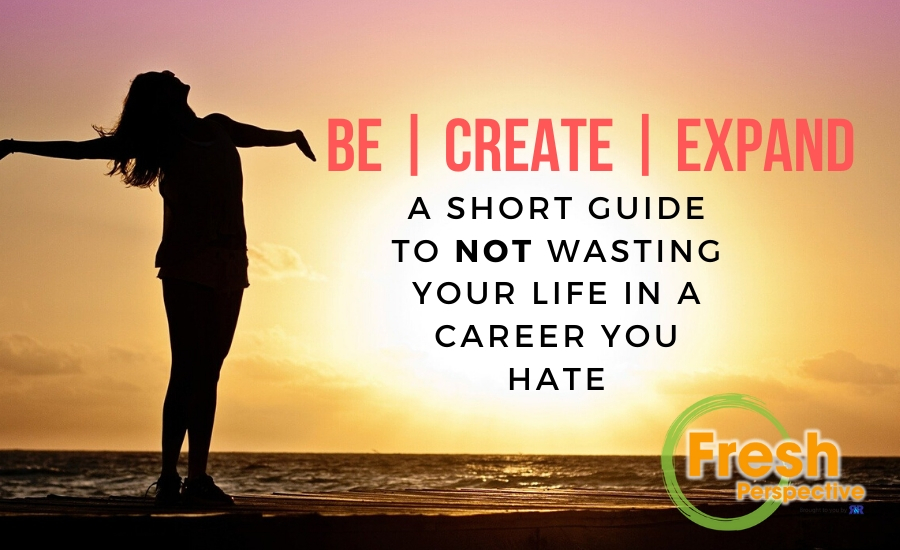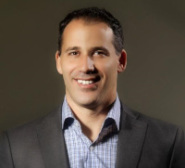Do you love your job enough to do it for free?
Probably not, right? Most people don’t. For most people, a career is a duty or a means to an end. Sure, you might occasionally run into someone who gushes, “I can’t believe I get paid for this!”
And you might feel a strong impulse to deck that person.
The truth is, that person knows how to build a life. This idea that work is a responsibility we all just have to push through is a myth. And it’s a myth that exists for one very stupid reason: Most people design a life based on what they want to gain instead of what they want to create.
Now, I’m not talking about greed. Or at least, I’m not only talking about greed. There are a lot of reasons people allow money to drive their decisions. They want security. They want proof of their value. They want to provide for their family. There’s nothing wrong with wanting these things.
The problem is that people believe they have limited options when it comes to building a happy and sustainable life. And that belief leads to years of regret and frustration.
The Worst Way to Build a Life
Let’s take a look at the process that guides many people’s career choices.
A young person looks ahead to the future and thinks, “I want to have a nice house, a nice car, and two vacations a year. What career pays well enough for me to achieve this life?”
He comes up with only a handful of possibilities and settles on becoming a lawyer. He spends six years in school, works as an intern, passes the bar, and gets a job at a firm.
The rest of his life plays out in one of three ways.
- He realizes he hates the work. This career isn’t the right fit for him. He returns to his list of profitable careers and picks a different one. The process repeats itself.
- He realizes he hates the work. But he came this far, and he doesn’t want the massive expense of law school to be wasted money. Besides, most people hate their jobs, right? He decides to grin and bear it for the next few decades. He drinks a lot to dull the pain and avoid thinking about his unhappiness.
- He’s lucky. It just so happens that this “practical” career path is right for him. He loves what he does. He finds meaning in it.
Result #3 is incredibly rare. It’s far more common to wind up slumped over your desk at 9:00 p.m., wondering how you wound up shuffling through this joyless existence . . . wondering how it’s possible that you did everything right—got the degree, secured the good job, bought the house—and you still feel lost and unfulfilled.
Society tells you this feeling is unavoidable. Life is hard. Work is hard. Success is measured in what you earn and what you can provide to your family. Pursuing a passion is irresponsible, selfish, and foolish.
As the theory goes, you can do what you love or you can be a good and productive person. You can’t have it both ways.
That’s a lie.
Be — Create — Expand: Find Fulfillment and Give More
Let’s clear this up right now:
Doing what you love is the most effective way to contribute something meaningful to your profession, your loved ones, and the world.
And despite common “wisdom,” following your heart is not a sure path to failure.
Look at this way. You spend a huge chunk of your life at work. If your career makes you anxious or depressed, how productive can you really be? Even if you’re bringing home a substantial paycheck, are your spouse and children enjoying their two vacations a year with a provider who often feels empty and lost? And what about you? Do you really want to spend the only life you have on work that means nothing to you?
Throw the old method away. Set aside all thoughts about what’s practical, how much money you want to make, or what you hope to one day own. Instead, think about what you’re good at and what you would actually enjoy doing day in and day out for the majority of your life.
When you start from here, you set out on an important journey that I call “Be —Create — Expand.”
- Be: Get to know yourself as you are. Set aside thoughts about who you should be or who you wish you were. Instead, take note of what you love, what you value, what you’re good at, and where your weaknesses are.
- Create: Develop your strengths into skills. Then master those skills and build a life around them.
- Expand: Enjoy your new life . . . this place of fulfillment and emotional strength. Find meaning in your career. Explore new ways to grow your career and nurture those around you through the work you do.
All that stuff you’re worried about now—income, financial growth, stability—it comes naturally through this process. When you love what you do, you enjoy the work of learning and improving. You connect to a deeper meaning behind your work, which makes your professional value clearer to yourself and to those around you. People want to work with you and you gain a reputation for excellence.
So, how do you make this happen?
How to Change Your Life in Three Easy Steps
I’m kidding. This won’t be easy. It also won’t be fast. But at least the journey is simple to understand . . . and completely worth it.
#1: Be
Find out who you are. And start by recognizing that your current sense of identity is not based on your true self, but on outside influences . . .
. . . like your fears. Your bad experiences. Values and beliefs passed down to you by your parents. Limitations others have imposed on you. These things all give you an inaccurate picture of who you truly are and what you’re capable of.
In this stage of the process, you need to strip away all these false definitions. And how do you do that?
Well, you already know the best way to get another person, right? It’s through real, one-on-one conversation. Make the time and space to share this kind of intimacy with yourself. Don’t be afraid to spend an afternoon, a day, or even a weekend alone. Ask yourself the same questions you’d ask someone you were trying to connect with on a deeper level.
“How do you see yourself? What do you value? What are you afraid of and where does that fear come from? If you could do anything with no risk of failure, what would it be?”
In order to connect with your true self, you have to lose yourself . . . strip away the person you thought you were and quiet old thoughts so you can hear the whispering within. For a great place to start, try this practice I’ve been doing for years.
Every night, before I fall asleep, I list the things I am not.
I am not my business. I am not the material things I own. I’m not my neighbor’s opinion of me.
You get the idea. Once you step away from all the things you are not, what’s left. Who are you?
#2: Create
In this phase, you build on your new self-knowledge to create the life you want. This could mean starting a new career path, finding new direction within your old path, or even just developing the skills that will help you make a change later on.
When you know who you are, what you want, and where your strengths lie, your entire approach to life changes. You move toward growth in both your career and your personal life. You work harder to learn and master those skills that are important to you.
Above all, you see the meaning in your actions. Your job is no longer just a job. Your chores are not just chores. They are all tasks that contribute to your larger goal of contributing to the world the people you love.
It’s in this phase that you begin to understand what you’ve been missing. You experience new happiness that stems from better relationships and personal growth. Financial gain no longer seems so important.
#3: Expand
You know who you are. You’ve rebuilt your life around this understanding. Now you let your chosen path widen to serve others as well as yourself.
Start noticing the power you have to improve the world just by doing what you love. Feel that transformation within yourself. You don’t care about the money anymore. You’ve found joy by following your passion and sharing your gift with others.
The incredible part is that when you live life this way, the money comes. Your skills and passion make you the kind of person everyone wants to work with. And your curiosity and desire to grow ensure long-term mastery of your field.
I’ll admit this process is easier to describe in writing than it is to live out in life. But the challenges that await you on your journey of growth are more than worth the reward you discover in the end.
What is that reward?
A life driven by the true desires of your soul and not by the imagined burdens of your mind.
Cheers,
Idan Shpizear
911restorationfranchise.com


